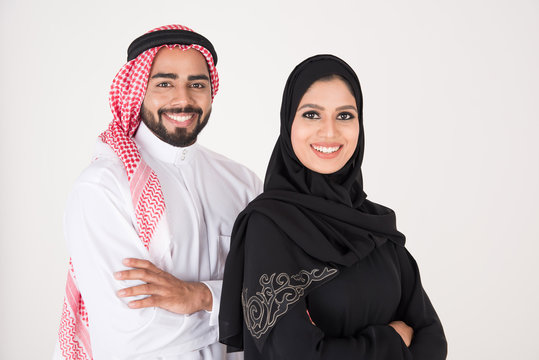Understanding the cultural and ethnic backgrounds of different nations is essential for fostering global relationships and enhancing our knowledge of the world. The question, Are Turkish people Arabs?, often arises in discussions about Middle Eastern and Eurasian identities, sparking curiosity and sometimes confusion. This article aims to explore this question in-depth by examining historical, linguistic, cultural, and genetic perspectives to provide a comprehensive understanding of the relationship between Turkish and Arab identities.
Historical Context and Ethnic Background
The history of Turkey is rich and complex, marked by the rise and fall of empires, conquests, and cultural exchanges. Turkey’s strategic location between Europe and Asia has made it a historical bridge in the migration and interaction of various ethnic groups. The founding of the Turkish Republic in 1923 by Mustafa Kemal Atatürk marked a significant shift towards secular nationalism, distancing the country from the Ottoman Empire’s Islamic caliphate system, which had included many Arab regions.
It is crucial to understand that the term Turks refers to the ethnic group primarily associated with the modern nation of Turkey. The Turks originally migrated from Central Asia to Anatolia in the 11th century, a period that significantly predates the establishment of the modern Turkish state. Over centuries, these Turkic people interacted with the indigenous populations of Anatolia and the Balkans, as well as with the Arabs during the Ottoman period, creating a diverse cultural and genetic mosaic.
The Ottoman Empire, which ruled over parts of the Arab world for centuries, was a multi-ethnic, multi-religious entity that included many Arabs, but it was primarily governed by the Turks. This long period of coexistence and governance left lasting impacts on both the Turkish and Arab worlds, but did not merge the distinct identities of the two groups. Thus, from a historical perspective, while there has been significant interaction, Turkish people are not Arabs.
Linguistic Differences and Similarities
The Turkish language is a member of the Turkic language family, which is distinct from the Semitic language family that includes Arabic. Turkish is agglutinative, meaning it forms words and grammatical constructions by stringing together morphemes without changing them in spelling or phonetics. This structure is quite different from Arabic, which relies heavily on a root system where words are formed by inserting different vowels between a set of consonants.
Despite these differences, there are numerous Arabic loanwords in the Turkish language, primarily due to the Ottoman Empire’s interactions with the Arab world. These words entered Turkish through religious, administrative, and cultural exchanges. However, the founding of the Turkish Republic saw a deliberate effort to purify the Turkish language, reducing the number of foreign loanwords, including those from Arabic. This language reform aimed to strengthen national identity and align the country more closely with Europe than with the Middle East.
It is interesting to note that both Turkish and Arabic are influential languages in their regions, and both have contributed to the linguistic landscape of the Middle East. However, the structural differences and the distinct evolutionary paths of the languages underscore the clear linguistic demarcation between Turkish people and Arabs.
Cultural Practices and Religious Beliefs
Turkey and the Arab world share some cultural similarities, which are often a result of their shared Islamic heritage. Both cultures enjoy similar cuisines, celebrate similar traditions, and adhere to many of the same religious practices due to the Islamic influence. However, there are distinct cultural practices that are uniquely Turkish, such as the celebration of Nevruz, the Turkish oil wrestling festival, and Turkish tea culture, which highlight the unique aspects of Turkish cultural identity separate from Arab cultures.
Regarding religion, the majority of both Turkish and Arab populations identify as Muslim. However, there are significant differences in religious practices and sect composition. For example, Turkey is predominantly Sunni, with a notable Alevi minority, whereas the Arab world contains significant Shiite populations, particularly in countries like Iraq and Iran. Additionally, the expression of Islam in cultural practices and legal systems varies considerably between Turkey and Arab countries, influenced by historical, regional, and political factors.
It is also essential to recognize the role of secularism in Turkey, a principle enshrined in its constitution and strongly advocated by Atatürk. This secular stance is a significant divergence from many Arab nations, where Islam plays a more central role in governmental and daily life. The Turkish commitment to secularism has influenced many aspects of its culture and politics, further distinguishing it from Arab nations.
Genetic Insights into Turkish and Arab Populations
Genetic studies have provided fascinating insights into the ancestries of Turkish and Arab populations. While there is some degree of overlap due to historical interactions, the genetic profiles of the two groups show significant differences. Studies typically reveal that the Turkish genetic make-up is a complex tapestry reflecting various waves of migration and conquest, primarily from Central Asia, Europe, and the Middle East.
Arab populations, on the other hand, show a closer genetic relationship to other Semitic populations, like the Jews and Phoenicians, and a more substantial genetic footprint from the Arabian Peninsula. The genetic distinction is crucial in understanding that, while there has been historical co-mingling, the primary ancestries and evolutionary paths of Turks and Arabs are different.
These genetic variations support the notion that, despite geographical proximity and historical interactions, Turks and Arabs are distinct ethnic and genetic groups. This distinction is important not only for academic and historical accuracy but also for the self-identity of the people themselves.
Conclusion: Understanding the Distinction
In conclusion, the question Are Turkish people Arabs? can be answered clearly as no. Turkish people are not Arabs; rather, they are defined by their own unique historical, linguistic, cultural, and genetic characteristics. While the Turks and Arabs have shared significant historical moments and influences, particularly during the Ottoman era, each group has retained a distinct identity.
It is crucial for educational and cultural exchanges that such distinctions be recognized and respected. Acknowledging the rich diversity and the specific identities within the broader Middle Eastern and Eurasian regions helps promote a deeper understanding and appreciation of each culture’s unique contributions to our global heritage.
This exploration not only clarifies common misconceptions but also highlights the beauty of our diverse world, where each nation and each people contribute to the tapestry of human experience in distinct and valuable ways.









